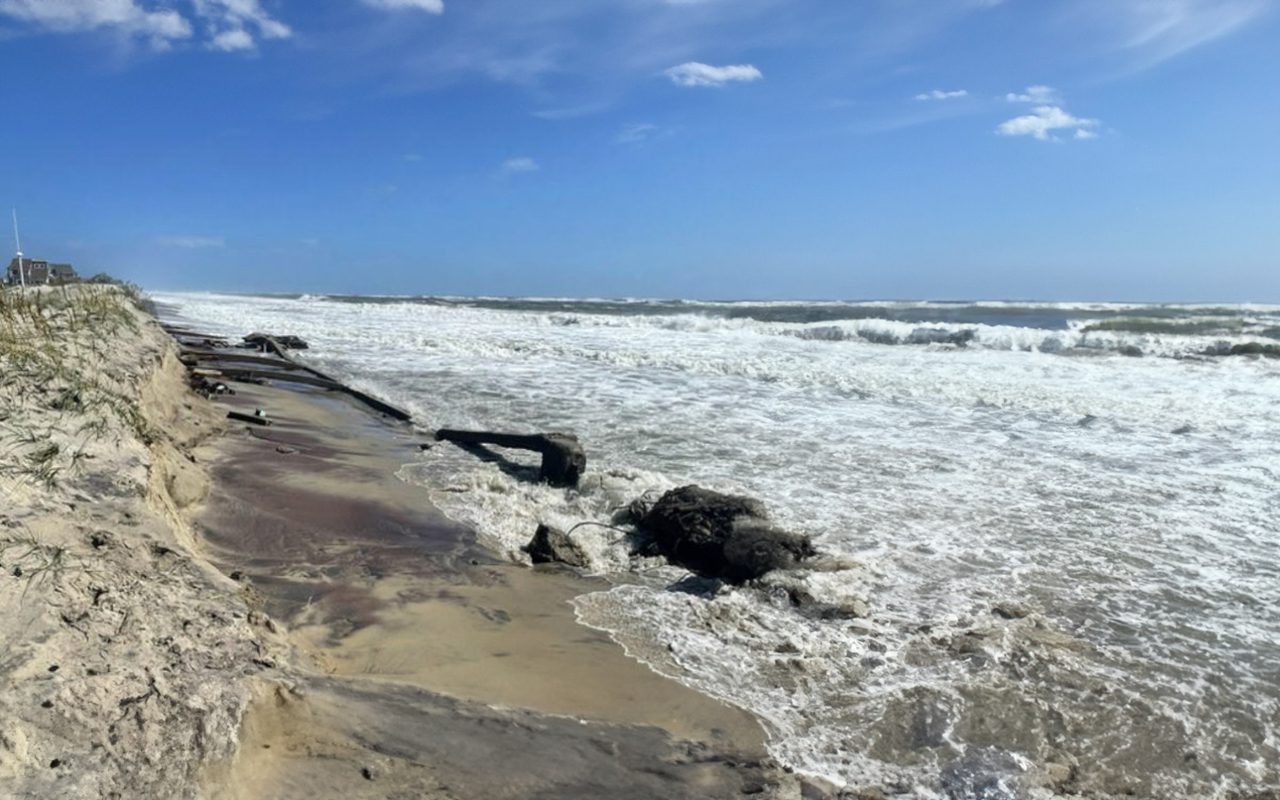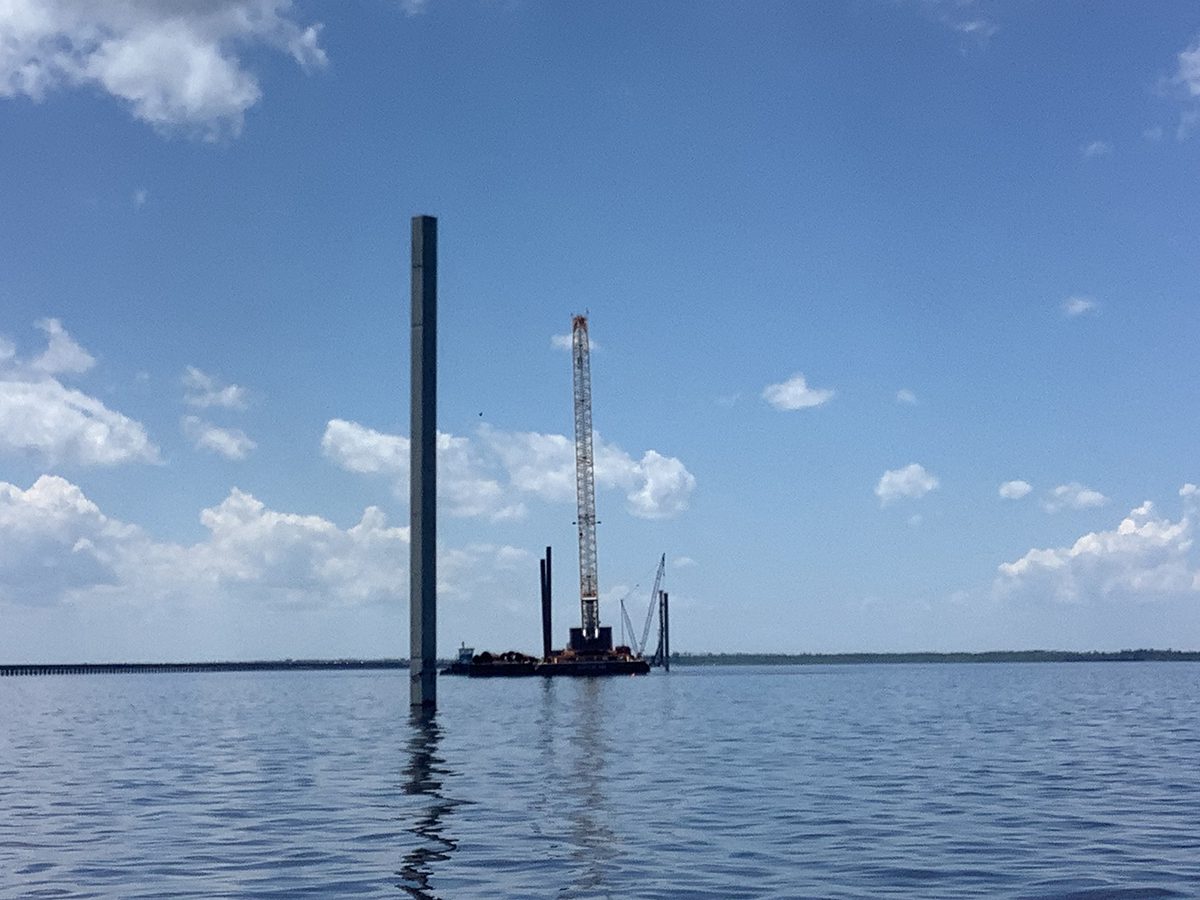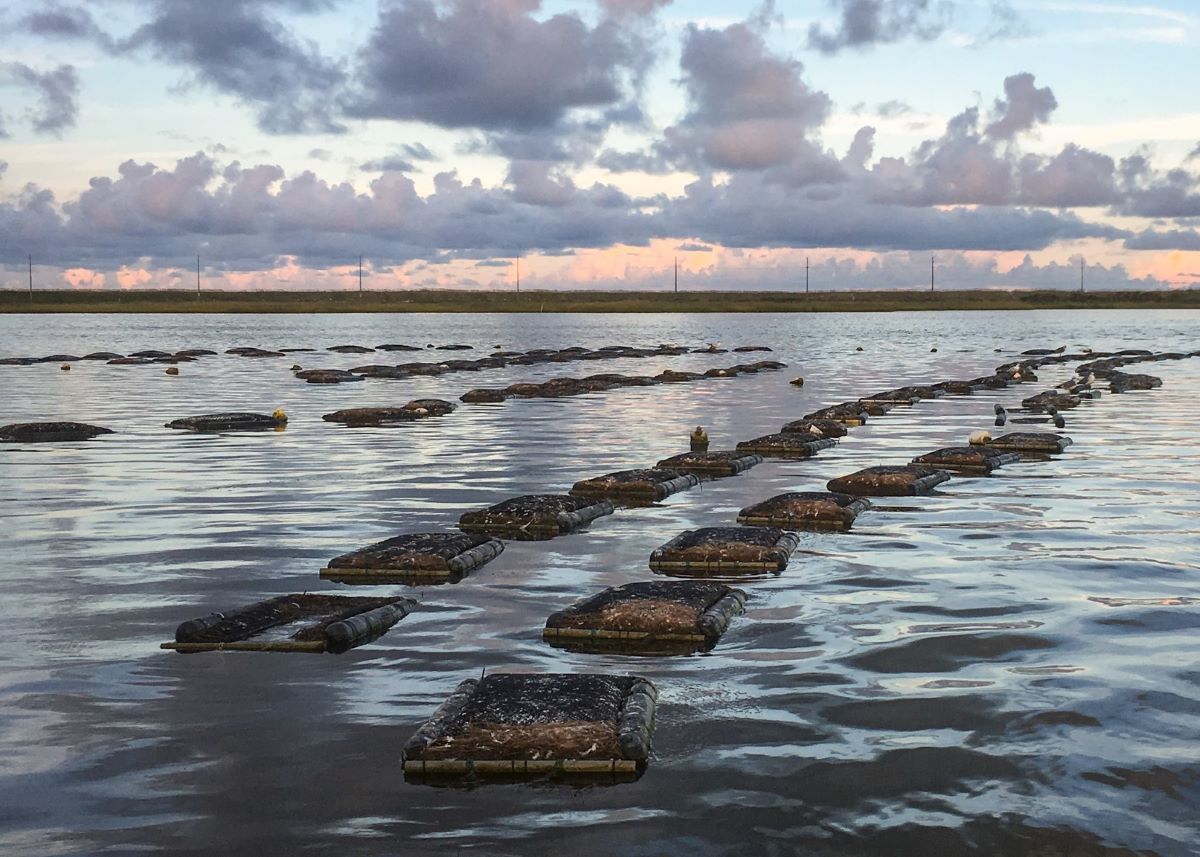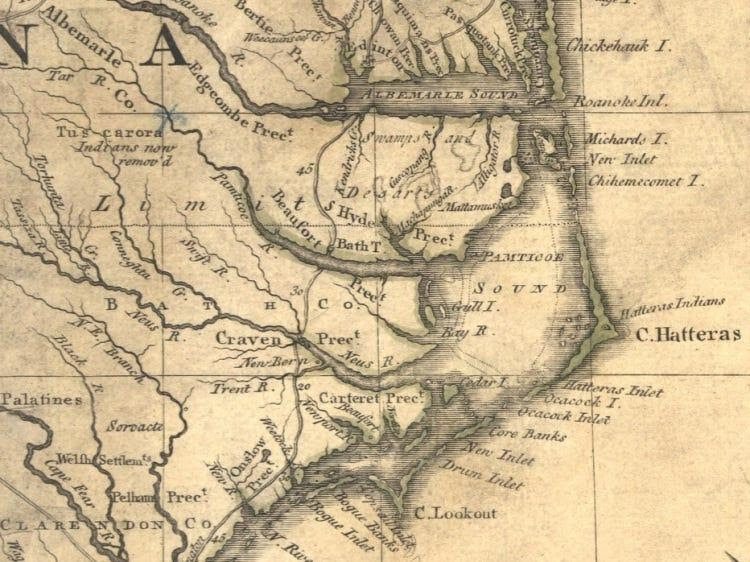
Clarification: Dare County officials noted in an email to Coastal Review that while the Coast Guard was the last owner of the site, “it was inherited from the U.S. Navy and the U.S. Army Corps of Engineers is responsible for the FUDS declaration so there are several parties at play that we would like to appeal to without any one party being perceived as taking the blame.” That said, the resolution states that the Coast Guard is the designated federal on-scene coordinator in the coastal zone, with a duty to assess and mitigate the problem, “when a responsible party fails to do so.”
Citing threats to the environment and public safety, the Dare County Board of Commissioners unanimously approved a resolution Monday that requests that the Coast Guard take immediate action to restore the Buxton beach access to its “pre-military condition.”
Sponsor Spotlight
Commissioner Danny Couch presented the resolution during the board’s regular meeting in Manteo. The resolution asks the Coast Guard, as the designated federal on-scene coordinator for the coastal zone in North Carolina, to take immediate action to rectify oil discharge into the Atlantic Ocean and adjacent shoreline and remove remaining infrastructure debris.
This situation is concerning, “not just from an environmental standpoint, but from a public safety standpoint as well,” Couch said.
The area at Cape Hatteras National Seashore’s Buxton beach access at the south end of Old Lighthouse Road served as a military base for both the Navy and Coast Guard from 1956 until 2010, according to the National Park Service website.
The Army Corps of Engineers approved in 1998 the Buxton Beach Access as a Formerly Used Defense Site and began responding to petroleum contamination there.
Sponsor Spotlight
On Sept. 1, 2023, visitors reported that erosion from two storms “uncovered potentially hazardous infrastructure associated with the Navy and Coast Guard bases and visitors reported a strong smell of petroleum,” and reported these concerns to the Environmental Protection Agency’s National Spill Response Center.
“Due to decades-long military usage and apparently incomplete restoration of the area, samples taken from the Buxton Beach Access beach tested positive in early September 2023, for petroleum-contaminated soils (PCS). Additionally, due to coastal erosion, abandoned facilities, construction debris, and septic systems associated with historic Navy and Coast Guard activities have been observed along the beach adjacent to the Buxton Beach Access,” the website states.
Most recently on Feb. 9, park staff noticed “a very strong smell of petroleum products and multiple surfers reported that their wetsuits and hair smelled like fuel and noticed a sheen on the water near Buxton Beach Access,” according to the website. Reports were again submitted to the National Response Center.
“Why should we be concerned about the closing of this beach here? I’ll tell you why,” Couch told the board. “Because it’s not a good look for National Seashore” to have houses crumbling into the ocean in Rodanthe because of erosion “and then to have crime tape” cordoning off the debris on the beach ranked No. 4 in the U.S. by Dr. Beach.
Dr. Beach is an author and director of the Laboratory for Coastal Research at Florida International University who ranks beaches at drbeach.org.
The area in Buxton is also where where the county has committed to preserving N.C. Highway 12 infrastructure, Couch noted.
“I’m just curious if this exact scenario had washed up on the beaches of, I don’t know, Martha’s Vineyard or the Hamptons on Long Island. Would we still be begging pleading for someone to please remediate this dangerous and unhealthy situation?” Commissioner Bob Ross asked during the meeting.
Commissioner Bob Woodard noted during the meeting that he, the vice chair and the county manager were going to travel to Washington, D.C., and, “this will be one of our top subject matters when we meet with our legislators.”







